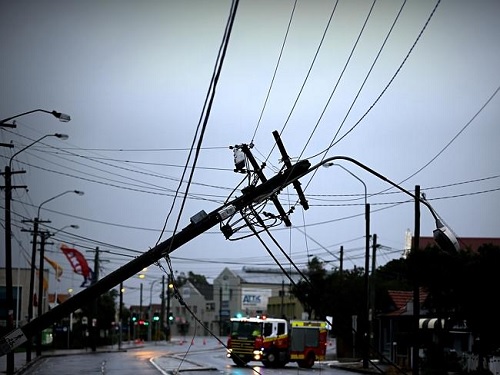This highway-blocking blown-down power pole that happened just down the road from me features for this week’s Open Thread. Please natter/chatter/vent/rant on anything* you like over this weekend and throughout the week.
 Hours of traffic blocked during the severe storms that hit the coast of New South Wales this week
Hours of traffic blocked during the severe storms that hit the coast of New South Wales this week
So, what have you been up to? What would you rather be up to? What’s been awesome/awful?
Reading? Watching? Making? Meeting?
What has [insert awesome inspiration/fave fansquee/guilty pleasure/dastardly ne’er-do-well/threat to all civilised life on the planet du jour] been up to?
* Netiquette footnotes:
* There is no off-topic on the Weekly Open Thread, but consider whether your comment would be on-topic on any recent thread and thus better belongs there.
* If your comment touches on topics known to generally result in thread-jacking, you will be expected to take the discussion to #spillover instead of overshadowing the social/circuit-breaking aspects of this thread.